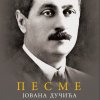Since then he has been acting on a worldwide stage in film and television. In 2008 he stared in, In the Name of the Son, AFI film that won 25 international film festivals and was qualified for an Academy Award.
Jack is fluent in Russian, Serbian, Croatian, Macedonian, Italian and English. He is very well known in industry for portraying characters with New York, Italian, French, Eastern European, Russian and Middle Eastern accents.
Some of his leading roles include such feature films as Guido, Brothers War, Travelator, Code 207, Red Rose of Normandy, Serbian Scars and Don't Look Up. He is very well known for his guest staring roles in TV shows such as CSI, Chuck, Burn Notice, Sleeper Cell, Undercovers and Castle.
Jack had leading roles in three short films that won all together 35 international film festivals. He was in major TV commercials for Ducati and Prada in Italy and BMW in Russia.
Recently he became a candidate for a membership in prestigious Actors Studio.
Jack Dimich has US and European Citizenship and resides in Los Angeles, CA.
From Official Web Site





